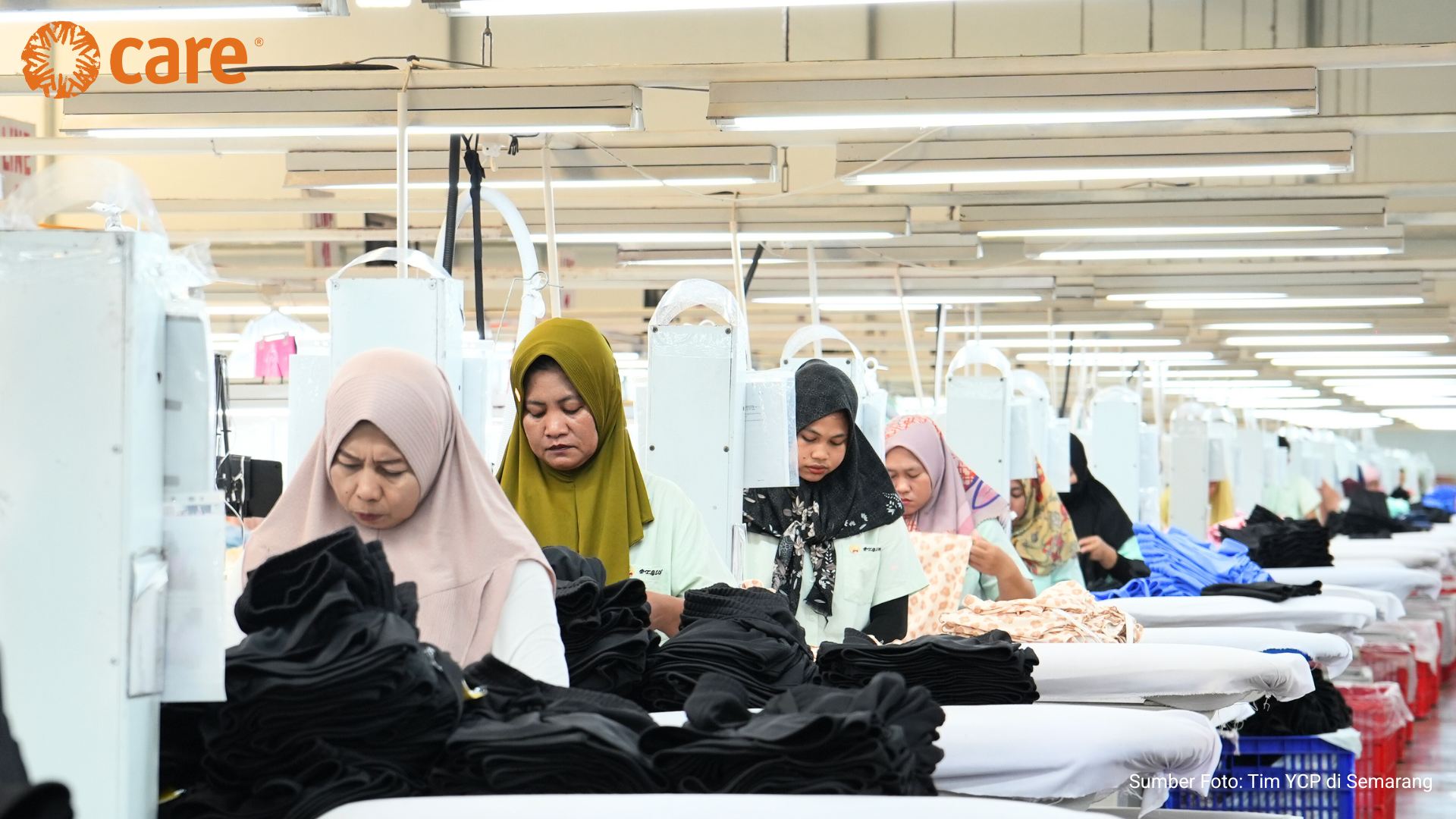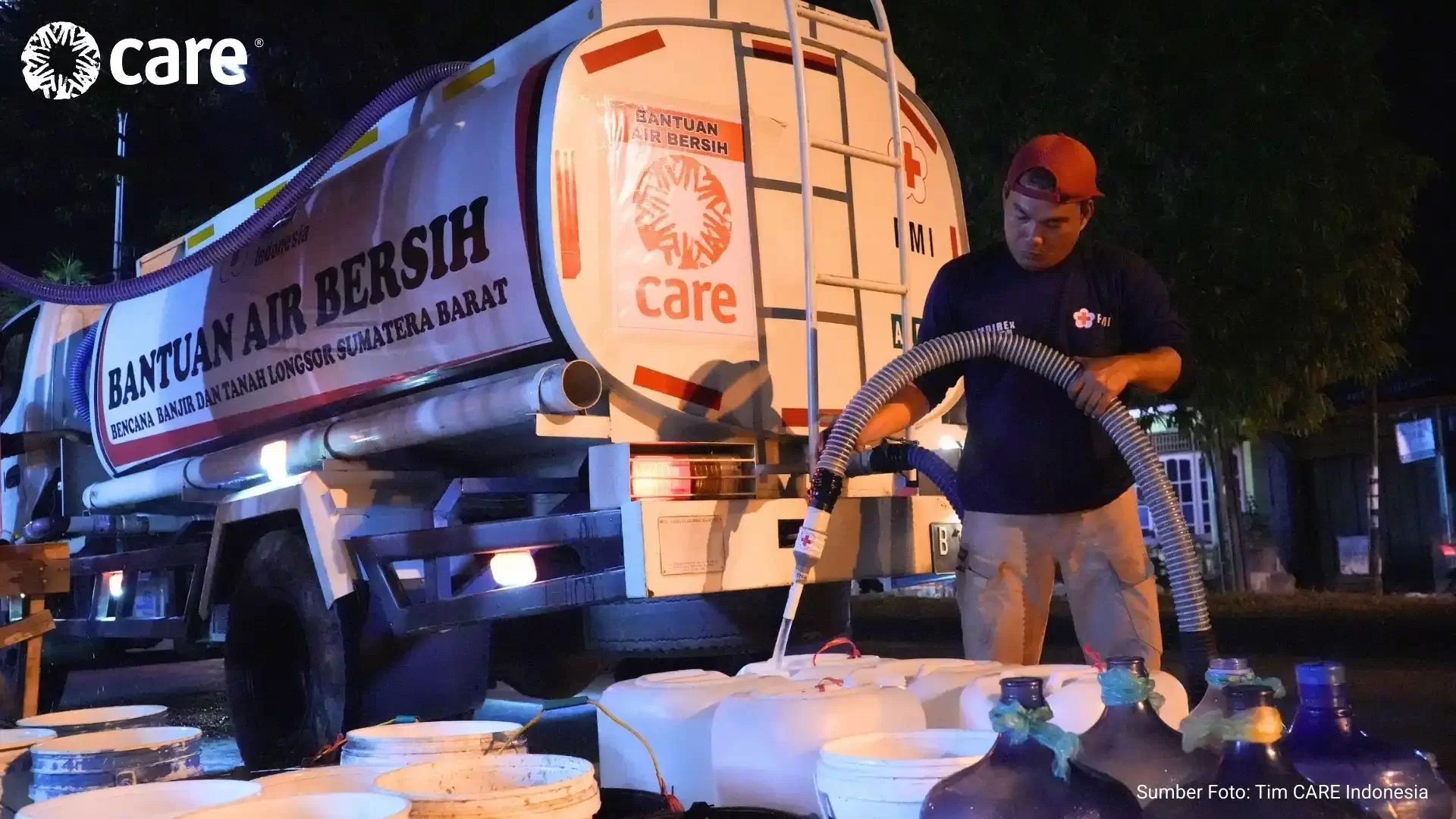The issue of gender equality in Indonesia’s industrial landscape remains a critical and ongoing concern. The rate of gender-based violence (GBV) among factory workers in Indonesia remains considerably high. According to data released by the National Commission on Violence Against Women (Komnas Perempuan), the 2024 Annual Report on Violence Against Women (CATAHU) recorded 2,702 cases of violence against female workers.
A study published by UN Women and the International Labour Organization (ILO) in 2019 shows that workers who lack an understanding of gender equality tend to be unaware of, or normalize, gender-based and sexual violence (GBV-SV), as well as other forms of discrimination in the workplace.
Yohanna Tantria, Project Manager at Yayasan CARE Peduli (YCP), stated that one of the reasons for the lack of understanding among factory workers about gender equality is the limited access to capacity-building programs on gender issues in the workplace and the importance of creating a safe space at work.
“Gender issues are not yet prioritized in the workplace due to the strong influence of patriarchal culture. As a result, female workers still operate in environments that do not support women’s leadership and where gender-based violence is normalized,” she said.
Yohanna further explained that support from company management to improve workers’ understanding of gender equality is essential. In fact, research by the ILO has shown that companies that respect workers’ rights, including gender equality, can increase profits by 5 to 10 percent.
“Business practices that respect human rights—including gender equality and fair working conditions—can enhance worker productivity, reduce employee turnover, and increase company loyalty and reputation. Moreover, companies that implement human rights standards are more likely to be trusted by consumers and investors,” she added.
Yohanna emphasized that building gender equality among factory workers is vital. According to her, achieving gender equality in the workplace requires a holistic approach, beginning with individual awareness, followed by collective awareness and action, and ultimately, strengthening company policies and regulations.
“Changing workplace culture and mindsets is not easy. However, companies can take concrete steps to create a more gender-responsive and violence-free workplace by regularly holding training and education sessions on gender equality, formulating gender-sensitive policies, and supporting female leadership,” she added.
Echoing this, Muhammad Zainudin, Quality Control at PT. Glory Industrial Semarang Demak, said that educating factory workers on gender equality is crucial in eliminating Gender-Based and Sexual Violence (GBV-SV). “Training and educational materials on gender equality are very important. From the training we received—one of them from CARE Indonesia—workers here have become more aware of the importance of creating a safe space for female workers. Previously, some male workers thought that playfully poking a female colleague was harmless, but now we all understand that it can constitute gender-based violence,” he said.
According to Zainudin, support from both workers and management is crucial when a GBV-SV case occurs. “We strive to implement a Zero Tolerance policy. So when any form of violence happens, there should be no tolerance for the perpetrator. We also make sure female workers are informed about and have access to reporting channels,” he emphasized.
Meanwhile, Dayat, a Production Supervisor at PT. Dasan Pan Pacific Indonesia, explained that the existence of Bipartite Cooperation Institutions (LKS) and task forces handling GBV-SV is one effort to create safe spaces for female workers. These initiatives offer female workers the opportunity to grow further. “As a member of both the Bipartite LKS and the GBV-SV task force, I always support the female workers on my team to progress. With guidance from CARE, I realized the importance of providing support and opportunities, especially for female workers. Out of 42 women on my team, three have now become leaders and supervisors. As long as they have the capability, I always give them the chance to grow,” Dayat concluded.
Writer: Kukuh A. Tohari
Editor: Swiny Adestika





